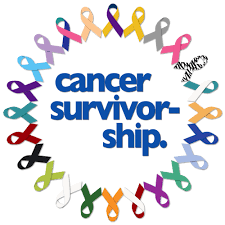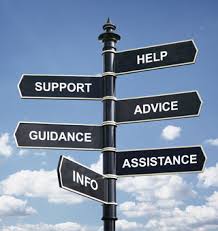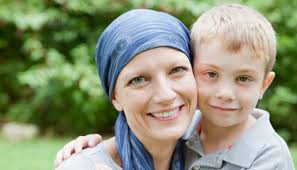Defining survivorship
Most common definition is living with, through, and beyond cancer. According to this definition, cancer survivorship begins at diagnosis and continues during treatment and through the rest of a person’s life. Everyone has to find their own path to navigate the changes and challenges that arise as a result of their cancer diagnosis and treatment
Cancer care does not always end when active treatment finishes. After cancer treatment is completed, oncologist may continue to monitor your recovery, manage any side effects, and check to make sure the cancer has not returned. Your follow-up care plan may include regular physical examinations and investigations during the coming months and years.

Follow-Up Care
Watching for recurrence
One goal of follow-up care is to check for a recurrence of cancer. A recurrence is when the cancer comes back after treatment.. Depending on the type of cancer, this can happen weeks, months, or even many years after the original cancer was treated.
A recurrence may be local, which means the cancer has come back in the same part of the body where the original cancer was located; regional, which means it has returned in an area near the original location; or distant, which means it has returned in another part of the body. The oncologist can give you more personalized information about your risk of recurrence and possibly suggest ways to reduce this risk.
Managing late and long-term side effect
Most people expect to experience side effects during treatment. However, it is often surprising to survivors that some side effects may linger after treatment, called long-term side effects, or that other side effects may develop months or even years later, called late effects. Other health conditions you may have, such as diabetes or heart disease, may also be made worse by cancer treatment.
Attention, memory, and thinking problems:
People who have been treated for cancer may have problems thinking and concentrating, paying attention, remembering things, and using language. These problems can be common in people who have had cancer, especially those who have cancer-related fatigue.

Follow-Up Care
Bone, joint, and soft tissue problems:
Cancer survivors who received chemotherapy, steroid medications, or hormonal therapy may develop thin or weak bones, called osteoporosis, or experience joint pain. The risk of osteoporosis can be lowered by avoiding tobacco products, eating foods rich in calcium and vitamin D, and doing some types of regular physical activity.
Digestion and swallowing problems:
Chemotherapy, radiation therapy, and surgery may affect a person’s ability to swallow or digest food. Certain types of cancer may also cause these problems. Additionally, some survivors may have chronic diarrhea that reduces the body’s ability to absorb nutrients. a dietitian can provide personalized nutrition advice and eating plans. These might help you get enough nutrients and may help you return to a healthy weight.
Emotional difficulties:
Cancer survivors often experience a range of positive and negative emotions, including relief, a sense of gratitude to be alive, fear of recurrence, anger, guilt, depression, anxiety, and isolation. Survivors, caregivers, family, and friends may also experience post-traumatic stress disorder, which is an anxiety disorder that may develop after experiencing an extremely frightening or life-threatening situation.
Fatigue:
Fatigue is a persistent feeling of physical, emotional, or mental tiredness or exhaustion. Cancer-related fatigue is different from the fatigue that a healthy person may experience because it is not relieved by sleep and rest. It is the most common side effect of cancer treatment, and some cancer survivors experience fatigue for months and sometimes years after finishing treatment.
Hormone (endocrine system) problems:
Some types of cancer treatment may affect the endocrine system, which includes the glands and other organs that are responsible for making hormones and producing eggs or sperm. For example, people who receive radiation therapy to the head and neck area may have lower levels of hormones or changes to the thyroid gland.

Follow-Up Care
Lung problems: Chemotherapy and radiation therapy to the chest may also damage the lungs, causing changes in how well the lungs work, thickening of the lining of the lungs, inflammation, and difficulty breathing
Lymphedema:
Lymphedema is the abnormal buildup of fluid in soft tissue caused by a blockage in the lymphatic system. It occurs in areas where lymph nodes have been damaged. Often lymphedema affects an arm or a leg. In some cases, the swelling goes away on its own as the body heals and normal lymph fluid flow resumes. Lymphedema may become chronic when the lymphatic system can no longer meet the body’s demands for fluid drainage. There is no cure for chronic lymphedema.
Peripheral neuropathy:
Peripheral neuropathy is a type of nerve damage that develops when the nerves that carry information back and forth between the brain and spinal cord are damaged. This damage can be caused by radiation therapy, some types of chemotherapy, or by the cancer itself. Depending on which nerves are affected, a person can develop numbness, tingling, pain, or muscle weakness, usually in the hands and feet

What to Expect after treatment?
After treatment ends, cancer survivors often describe feelings ranging from relief to fear. Some survivors say they appreciate life more and have gained a greater acceptance of themselves. At the same time, other survivors become worried about their health and uncertain of how to cope with life after treatment,
Fear of recurrence One of the most common concerns survivors have is worrying the cancer will come back. The fear of recurrence is very real and entirely normal. It is important to remember that although you cannot directly control whether the cancer returns, you can control how much the fear of recurrence affects your life.Talk to the oncology team to know the risk of recurrence and reassure yourself.
Depression For some survivors, life after cancer may also include depression. Depression often begins with feeling sad and losing interest in doing things that a person used to enjoy. This feeling is a common reaction after treatment, and normal sadness comes and goes. But if it is persistent and continues every day for more than 2 weeks, it may be what doctors call “clinical depression.”
Ways to cope Living with uncertainty is not easy, so it is important to develop a positive mindset and to focus on your ability to move forward with your life. Feelings of fear and anxiety will arise from time to time, but as time passes these emotions should not be a constant part of your life after cancer. Worrying about the cancer coming back is usually most intense the first year after treatment, but it generally gets better over time.
It often helps to talk about your fears and feelings with a trusted friend, family member, or mental health professional. Or you can try writing down your thoughts privately in a journal. Talking and thinking about your concerns can help you explore the issues that underlie your fear.
Healthy habits like eating nutritious meals, exercising regularly, and getting enough sleep help people feel better both physically and emotionally. Avoid unhealthy or dangerous habits. Don’t smoke, or quit smoking if you currently use tobacco. Limit the amount of alcohol you drink. Do not worry alone. Many cancer survivors find joining a support group to be helpful. Support groups offer the chance to share feelings and fears with others who understand. They also allow you to exchange practical information and helpful suggestions. The group experience often creates a sense of belonging that helps survivors feel less alone and more understood. Other sources of social support may include your friends, organizations in your community, and faith groups.
Exercising regularly . Start slow and build up. Aim to do at least 150 minutes of moderate aerobic exercise, like walking and resistance (strength) training two or three days per week.

Sexual health and intimacy :In general, although people are less interested in sex while having cancer treatment and at times of crisis, interest in sex usually improves during recovery and survivorship. However, some survivors may experience changes in their sexual function or sex drive caused by cancer and cancer treatment. Even though it may feel awkward or uncomfortable, it is important to discuss what you are experiencing with a member of your health care team.
Dealing with infertility:
Some couples find that cancer treatment has made it difficult or impossible for them to have children. a fertility specialist may be able to use assisted reproduction techniques, such as in vitro fertilization (IVF).
Cancer rehabilitation Cancer and its treatment often cause physical, psychological, and cognitive problems. These problems can make it harder to do daily activities or return to work. Cancer rehabilitation can help with these problems, which can happen during and after cancer treatment. The goal of cancer rehabilitation is to Help cancer survivor stay as active as possible and participate in work, family, and other life roles ,Lessen the side effects and symptoms of the cancer and its treatment . Helps to keep you as independent as possible & Improve your quality of life
Cancer rehabilitation is given by trained rehabilitation professionals, such as Physical therapists ,pain management specialist, Cognitive psychologists, Occupational therapists , Vocational counselors, Speech pathologists and dietitians .These programs help survivors build strength, endurance, and mobility.
Survivorship support groups: As you move from active treatment into survivorship, know that you are not alone. You have family, friends, and community resources there to help you manage the emotional, practical, and financial issues that arise as you transition back into “normal” life. Support groups offer the chance for people to talk about their experiences with other survivors. Group members can share feelings and experiences that seem too strange or too difficult to share with family and friends. The group experience, which is often led by a trained counselor, social worker, or psychologist, often creates a sense of belonging that helps each person feel less alone and more understood. These groups often invite speakers who can provide expert information.
Online support groups may also be a good choice for those who do not feel comfortable sharing their experiences face-to-face. Online communities or social networking sites can connect you with other survivors who share common interests or who are in a situation similar to yours. Many cancer advocacy organizations have online support groups as well.
Positive feelings often arise during the transition to survivorship. Many survivors express a strong desire to “give something back” because of the care and kindness they received. Many realize they have a lot of valuable experience that can help others facing cancer. If you are interested in giving back, think about your own interests, strengths, and areas of expertise and how various organizations could use them to help further their mission. Volunteering makes an important difference in someone else’s life while making a positive difference in your own. There are a number of ways for survivors to make an important difference in someone else’s life and often make a positive difference in their own life at the same time..BRING THE CHANGE
